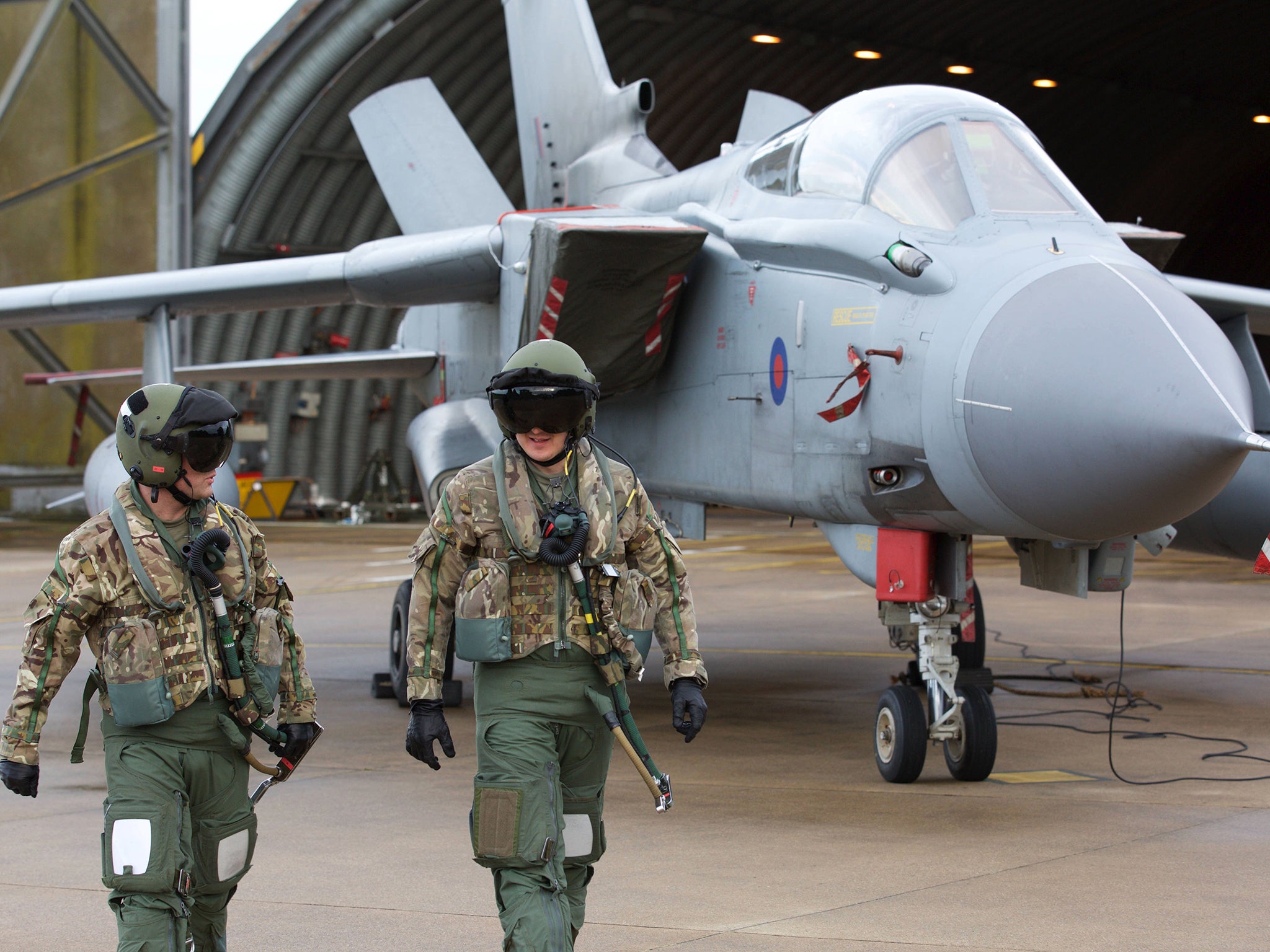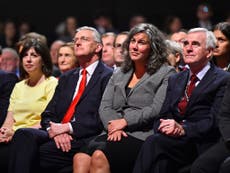As the RAF's first woman fast-jet pilot, I know we need to question the psychological effects of war on our pilots in Syria
Although I became institutionalised, I got out in enough time to recover. Had I stayed longer, I would never have been able to become a mother and bond with my children

I was in the military for eleven years. I was a fighter controller for six years and served two tours before re-enrolling as a pilot once the RAF made the decision to allow women to fly. I was the first woman to pass through the Royal Air Force's fast-jet flying training system. I trained to fly and engage in ground attack and air-to-air combat.
One of the most appealing things about the military is its camaraderie. It attracts and rewards those with a natural degree of loyalty, team spirit and ability to operate effectively under pressure. I played hard and worked hard alongside like-minded people. We had a ball.
No-one I knew, joined the military to kill someone. We were all attracted to the lifestyle. The fast-paced adverts promised adventure, excitement, an outdoor life, new experiences, world travel and a respected career. No-one mentions the killing clause. The military doesn't carry a mental and emotional health warning: it should.
Throughout training and serving, dissociation from the act of killing is subtly introduced and reinforced through powerful diversion of attention to more immediate stimuli. This is achieved through rigorous, repetitive and enjoyable training with a focus on accuracy, timing and technique. Zero attention is given to the actual purpose of the training.
When the aircraft is live-armed and the mission is real, instilled and highly practiced routines hold sway. Muscle memory takes over. Emotional thinking is firmly discouraged as it leads to stress beyond optimum levels.
Because of the emphasis on minimising emotional thinking and expression, high levels of stress can be held at bay for a considerable period of time. This is useful, even necessary, in a combat scenario, where lives depend on one's ability to control one's emotions and operate the aircraft safely and effectively. With practice, stress reactions can be so effectively subsumed that the sufferer stops feeling, even after the event.
Once servicemen leave the emotionally controlling confines of the military, mental and emotional health issues begin to seep into everyday life. Feelings of guilt, listlessness, depression, an abiding sense of doom, withdrawal and estrangement can take over. Those with the greatest capacity for emotional maturity face both the most pain and the best chance for recovery.
I was lucky. Although I became institutionalised, I got out in enough time to recover. Having children helped me enormously. Another few years and I would have either not had children, or struggled to bond effectively with them. I would have been too angry and frustrated with their incompetence and clear inability to follow simple instructions. I was a trained killer. Transitioning from that to motherhood was a stretch.
I believe we set up our willing young men and women in the armed services for a lifetime of emotional disability that impacts any families they become part of, all in the name of loyalty to the crown. They don't make the decision to kill. It is made for them. They just follow instructions and suffer the consequences.
This approach affects their ability to engage in 'normal' work following their military career. The training provided by the military doesn't carry over well to 'civvy street'. There aren't many jobs that can hold you if you've been particularly well trained to kill. A significant proportion of our homeless are ex-military. They started out like me, full of youthful enthusiasm and energy.
Yet again, we are sending out more of our young men and women to the Middle East to carry out air strikes in Syria. More young people will return to their lives at home, unable to find normal work and support families. Unable to live the happy fulfilled lives that were promised to them. In the words of Wilfred Owen ‘Foreheads of men have bled where no wounds were.’
For a fraction of the defence budget, a dozen warships could be converted to aid ships. Tanks full of medical supplies can reach just about anywhere; where they falter we have heavy-lift helicopters. These are jobs worthy of our young people serving in the military. These are tasks they can be proud of. It's a bold change of mindset, certainly but I believe my children, and all young soldiers, deserve it.



Join our commenting forum
Join thought-provoking conversations, follow other Independent readers and see their replies